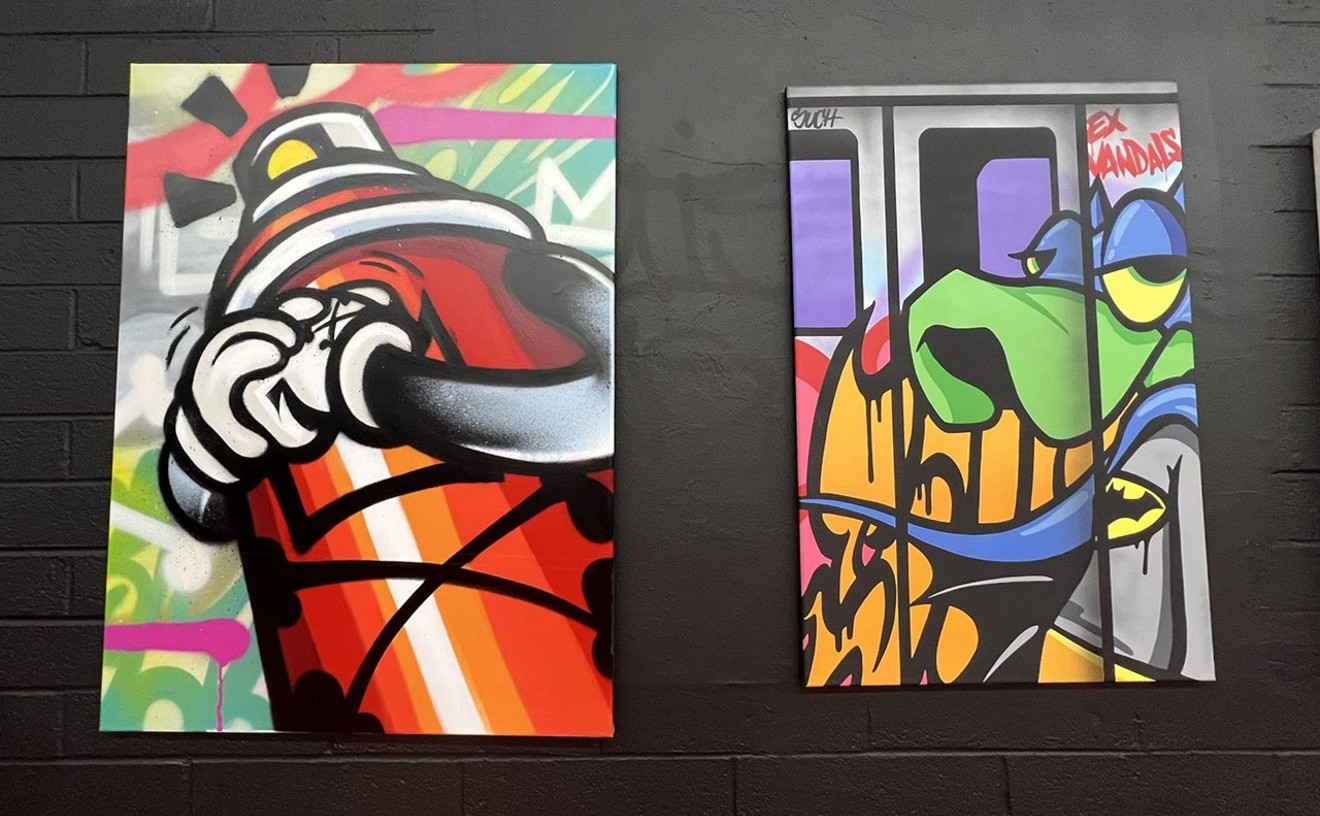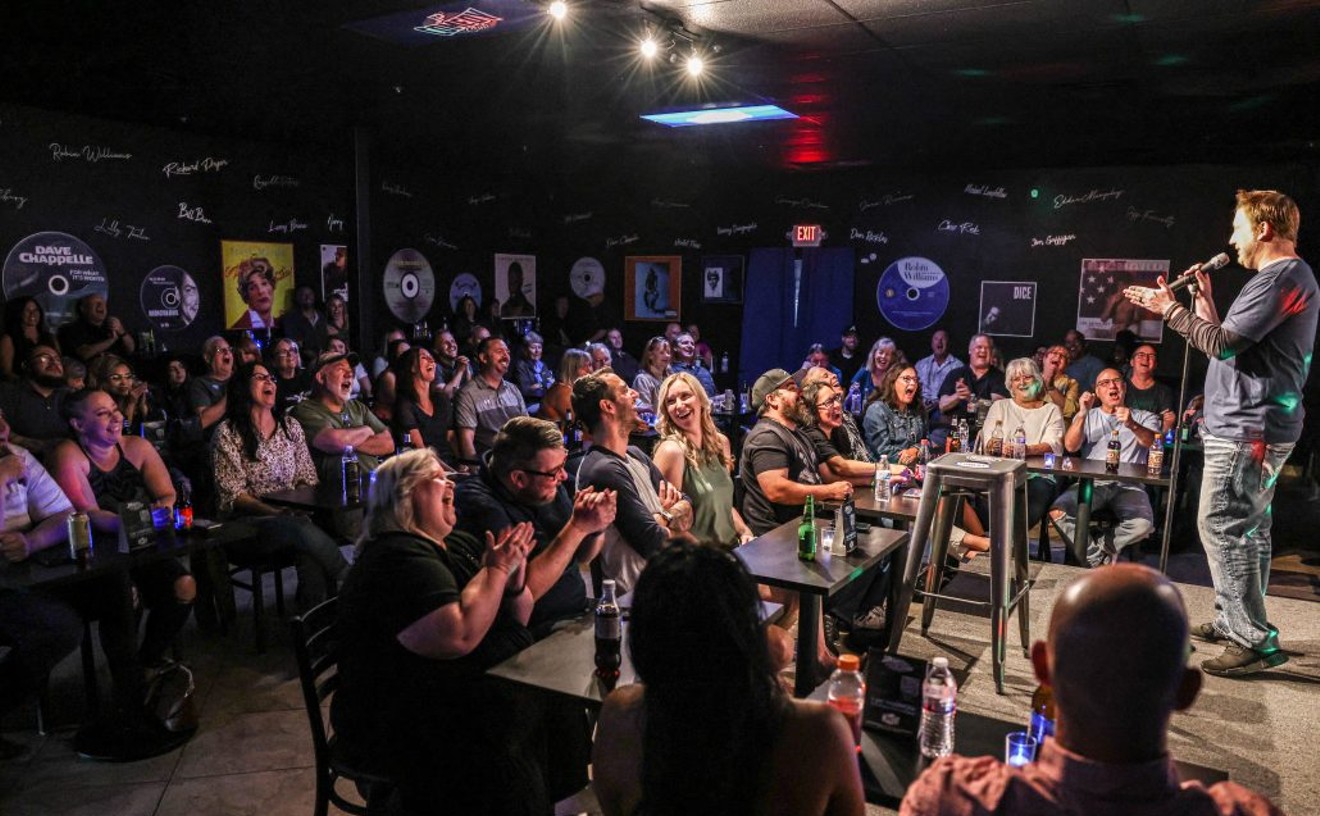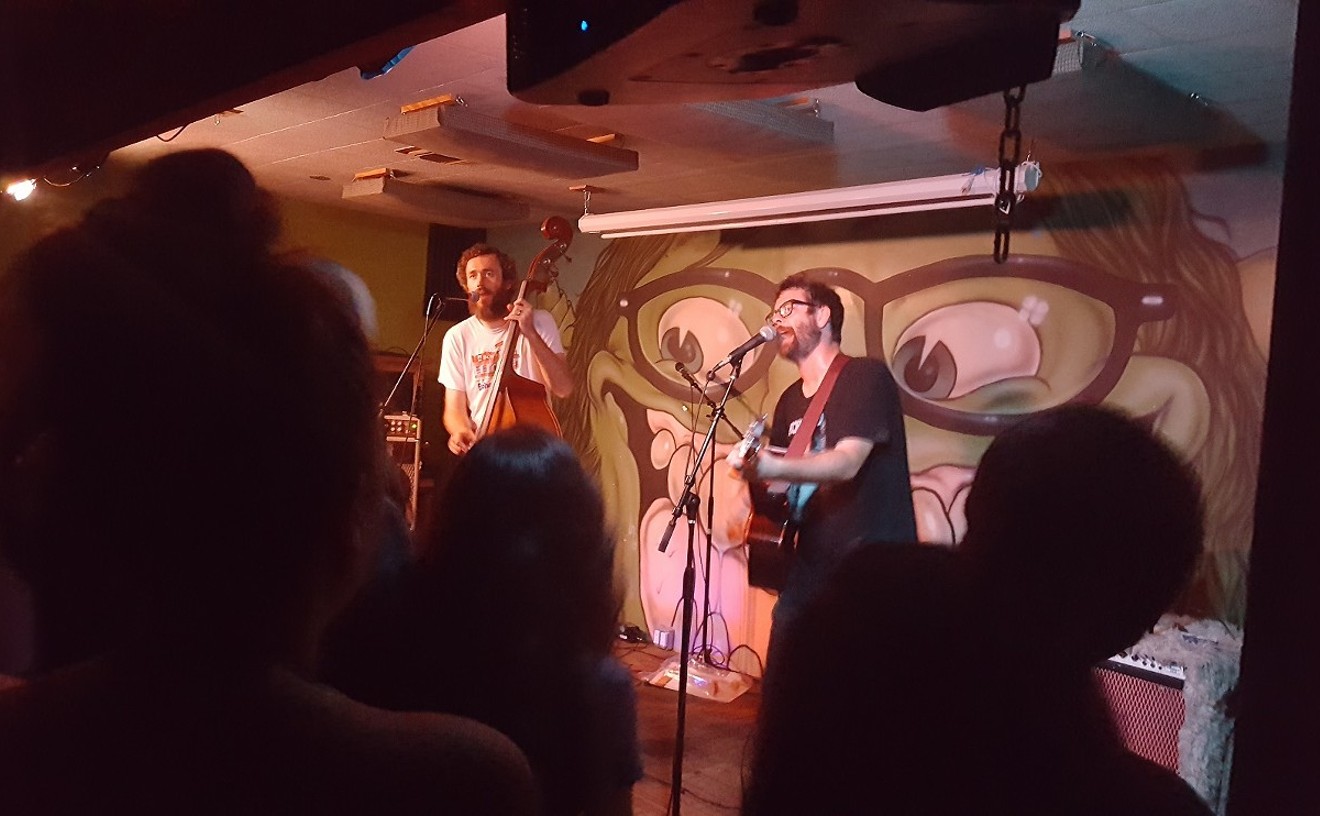There is no critiquing a play like The Pornozombies, now onstage at Nearly Naked Theatre. The Pornozombies is intentionally bad theater, a two-act so deliberately self-conscious that it never appears to be sending up either pornography or cheesy zombie movies. Plays like this offer a couple of hours of harmless fun, but their high-pitched comedy is beginning to sound like the death rattle of camp.
Susan Sontag rather famously defined camp for us in 1964 as "something of a private code, a badge of identity even, among small urban cliques." A half-century later, it is neither so rarified nor engaging. There's a reason for this. Camp these past several decades has been dependent upon the earnestness of pop culture from the middle of the last century. Today, references to Beach Party movies come 30 years too late, and wisecracks about Bette Davis are lost on audiences who think Top Gun is an "old movie."
Likewise, the gay sensibility that both informed camp and made it rarified and naughty can today be found on network television; thus, a man onstage in fishnet stockings singing about his mommy is neither daring nor especially funny, it's something from a rerun of Seinfeld.
Today, therefore, The Pornozombies and its ilk (Kevin Murphy's Reefer Madness; Charles Busch's Psycho Beach Party) are neither subversive nor daring. And because they rely upon bad acting and cheap scenic design, they are nearly impossible to either miscast or to disparage. Having an opinion about the need for another Pornozombies, or the quality of its performance (and Nearly Naked's is as good as any version probably can be) is unnecessary. Popular culture is so informed today by camp and kitsch that a campy spoof must parody the very idea of the campy spoof — and having done so, such a play appears, in 2014, to be just another goofy comedy.
This one's about a mad scientist who's reanimating corpses who then star in zombie porn videos he films, and the female police chief who's trying to bust up the porn-zombie ring because she once spotted her dead father in one. It stars Doug Loynd and Laura Anne Kenney, both perfect scenery-chewers, and a lot of people who cannot act at all, which in this context allows them to appear talented.
Where the audience for such fare as Matt Casarino's fast-moving script were once in on the joke (think The Rocky Horror Show circa 1974, or any of Charles Ludlam's earliest plays, all dependent on our knowledge of Hammer Films sci-fi and Golden Era film actresses), we now run the risk of being the joke: People who still find humor in deliberately crummy acting, intentionally awful sets, and the wild surmise with which overwrought dialogue is delivered might be the very squares who are typically mocked in these smarmy satires.
We once applauded theater artists like Damon Dering, Nearly Naked's artistic director and the director of Pornozombies, for bravery and inventive insight; today, we might worry that these same artists — required to bring their audiences its ration of camp — are becoming quaint, stuck in a once-outrageous rut.
To quote Sontag's definition of camp, "Camp sees everything in quotation marks. It's not a lamp, but a 'lamp'; not a woman, but a 'woman.'" Perhaps, in this day and age, The Pornozombies is therefore not so much a play as a "play."










